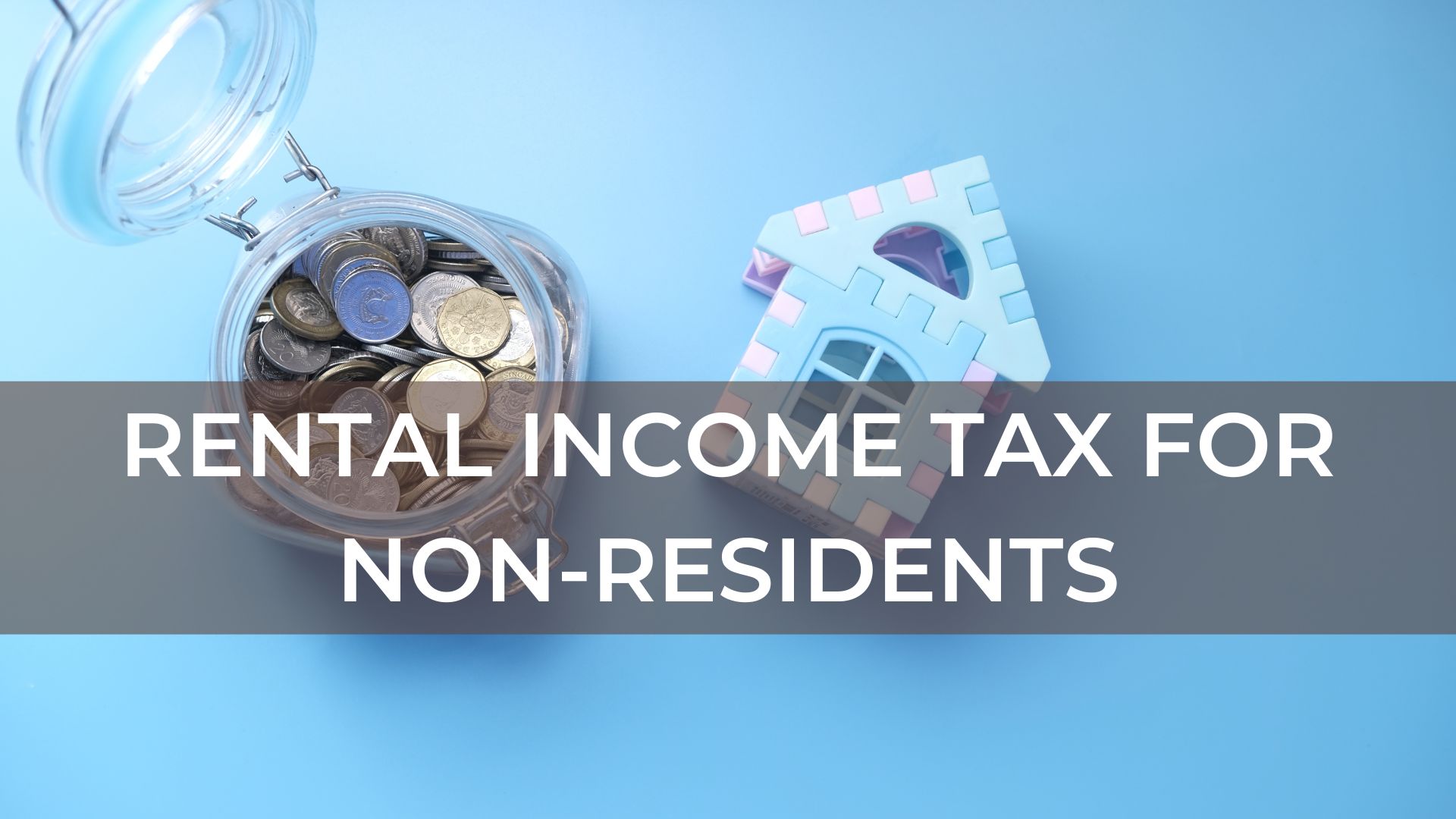Licence of First Occupation: A Complete and Updated Guide Discover everything you need to know about the licence of first occupation in Spain, its importance, how to obtain it, and the necessary documents for its concession. Following you will find an essential guide for property owners and buyers. What is the Licence of First Occupation? The license of first occupation is a permit granted by the Public Administration that certifies a property meets all legal requirements from an urban planning perspective. Issued by the local Town Hall where the property is located, it ensures that the construction or refurbishment complies with current town planning regulations. How to obtain the Licence of First Occupation? Licence application The application for the license of first occupation can be submitted by the construction company, the person responsible for the renovation, the architect, the property owner, or a legally authorized representative. Once the provided documentation is reviewed and verified that all legal requirements for habitation are met, the local council will approve the application. If there are deficiencies, they must be corrected, and the application resubmitted. Documents Required for the Licence of First Occupation In order to obtain the licence of first occupation, it is necessary to present several documents related to the property and the applicant: Applicant´s ID (DNI or NIE) Copy of the property title deed Application form Construction completion certificate Proof of payment of the fee associated with the procedure Additional reports that may be required on a case-by-case basis However, during the home inspection, additional documents may be requested, such as the energy efficiency certificate, waste certificates, or water and electricity supply documents, among others. The Architect and the Responsible Declaration The architect plays a crucial role in this process, being responsible for the project design and ensuring compliance with all planning and building regulations.Once the construction is finished, the architect must issue a completion certificate, known as “Declaración Responsable” (or Responsible Declaration, in English), confirming the construction adheres to the approved project and legal urban requirements. This certificate is essential for applying for the licence of first occupation.Upon presenting the Responsible Declaration to the Town Hall, the property is authorized for occupation and use, allowing for the necessary utility connections to be contracted.In most cases, the architect will assist in managing and submitting the application for the licence of first occupation to the relevant authorities, simplifying the process for the owners. I want to talk with a lawyer When do you have to present the licence of first occupation? In the Valencian Community, Decree 12/2021 mandates the Responsible Declaration of first occupation in the following cases: First occupation of residential buildings and their installations. First occupation of dwellings undergoing extension, alteration, refurbishment or renovation. First occupation of buildings and installations changing their use to residential, such as commercial spaces. Why is it important to have the licence of first occupation? Obtaining a licence of first occupation is essential for homeowners, as it certifies that the property complies with the legal regulations for residential use.Its importance is undeniable as it constitutes the essential document for contracting basic utilities such as water, electricity and gas, which are necessary to live in the dwelling. Without a valid licence, these utilities cannot be accessed, and the property may be deemed uninhabitable, affecting its sale or rental.With that said, the absence of this licence may justify the annulment of a purchase contract. Consequences of not having the Licence of First Occupation Living in a property without a licence of first occupation can lead to significant fines and penalties due to health risks. Additionally, the property is considered legally uninhabitable, preventing the contracting of utility services, as well as its rental or sale as a dwelling. How to check if your property has a licence of first occupation To verify if a property has the licence of first occupation, head to the corresponding Town Hall where the dwelling is located and submit an application form along with the proof of payment, a photocopy of the owner’s ID and a copy of the property title deed. When does the Licence of First Occupation expire? This document is valid for 15 years. If you do not have the licence or it has expired, you will need to apply for a new licence or the corresponding renewal. Frequently asked questions What is the first occupation licence? The license of first occupation is a permit granted by the Public Administration that certifies a property meets all legal requirements from an urban planning perspective. Who can apply for the licence of first occupation? The application can be made by the construction company, the person in charge of the renovation, the Architect, the property owner, or a legal representative. What documents are required to obtain the licence of first occupation? You need the DNI or NIE of the applicant, a copy of the property title deed, the application form, certificate of completion of the works, proof of payment of the associated fee, and possible additional reports requested by the Town Hall. When is the licence of first occupation compulsory in the Valencian Community? It is compulsory for newly constructed buildings, refurbished or extended dwellings, and buildings changing their use to housing. Why is it important to have the licence of first occupation? It certifies that the property complies with legal regulations and is required to contract basic utility services such as water, electricity and gas. What happens if I do not have the licence of first occupation? Without this licence, the property is considered uninhabitable, preventing the contracting of supplies, and its sale or rental as a dwelling. The licence of first occupation is a crucial document to ensure a property complies with legal regulations and is fit for habitation. It is essential for contracting basic services and for any legal transactions related to the property.For any queries, as it is an essential aspect regarding the dwelling, please contact our Real Estate expert Lawyers and Architects in this matter for an… Continue reading Licence of First Occupation in Spain: A Complete and Updated Guide
Category: Sin categoría
Housing Law in Spain
Housing Law in Spain: Important developments and key aspects. The new Housing Law in Spain, officially Law 12/2023, of 24 May, for the Right to Housing, was finally approved by the Senate on 17 May 2023, thus being the most recent publication in the regulations regarding real estate rentals. Its main objective is to regularise the rental situation in the tensest areas of the market and to help all those who have difficulties in accessing decent housing to live in. What is the intention of the Spanish Housing Law? This law is responsible for regulating rental prices in areas recognised as stressed, i.e. those where the average rental price is well above what households can afford to pay for it. At the same time, it seeks to promote the creation and maintenance of public housing with the intention of ensuring the supply of available rents at reasonable prices, as well as to prevent situations of tension from arising in this market. What is a stressed area? A zone is declared stressed when one of the following circumstances occurs: 1. Average rent or mortgage burden plus basic expenses is more than 30% of the average household income in the area.2. The rental or purchase price has experienced a minimum growth of 3 points above the CPI in the corresponding autonomous community during the five years prior to the declaration of the area as a stressed area.The Autonomous Communities are responsible for classifying the areas as stressed areas, and may maintain this status for a period of 3 years, which may be extended depending on the circumstances. What is a large landlord according to the Housing Law? “Gran tenedor” or “large owner” means any natural or legal person owning more than 10 properties or areas of up to 1,500 m2 suitable for residential use, in the case of non-stressed areas.In case of stressed areas, the consideration changes. A large owner is the one who owns 5 or more urban properties for residential use located in the same area declared as stressed.Garages and storage rooms are excluded in both cases. Limit on the annual updating of rental contracts, the CPI (consumer price index) is eliminated. Rent updates will always be limited to the index stablished in this Law; the CPI will no longer be taken as a reference to avoid disproportionate increases. This way, a maximum of 3% is set for 2024, and from 2025 onwards a new index will be created that can be updated annually, which has yet to be determined. I want to talk with a lawyer Rent price regulation in stressed areas. The most important measure aimed at controlling the abusive increase in rental prices is the regulation of rents in stressed areas. The obligation is imposed on new tenants to maintain the price of the previous contract, and this cannot be increased by more than the corresponding annual price index.Let’s look at an example of a property that had a rent of 1,000 euros per month. When a new rent is proposed, the price of the new rent will be limited by the price of the previous contract (€1,000) plus the corresponding annual index (3% in 2024). Thus, when a new contract is agreed, it cannot exceed €1,030 per month.Where it is a large tenant, or in the case of properties that have not been rented as a principal residence in the last five years, it may not exceed the ceiling of the price applicable under the reference price index system.Exceptionally, in cases where the intervention of the competent administrations is necessary, the law recognises the possibility of an extraordinary annual extension of the contract once it ends for a maximum period of three years, provided that the tenant proves to be in a situation of social or economic vulnerability. Now the real estate agent’s fees are paid by the owner. Previously, it was not compulsory for the landlord to pay, however, with the current regulation, the expenses derived from the real estate management and the formalisation of the contract will be assumed by the landlord and not by the tenant. IBI tax surcharge for empty properties. Townhalls will be able to apply the IBI surcharge to properties that have been empty for more than 2 years, as long as the owner has at least 4 properties in this situation. Exceptionally, the IBI tax may reach up to 150% if the local councils deem it appropriate. Tax benefits for property owners In terms of taxation, the Housing Law presents a beneficial regulation of the IRPF for those owners who obtain rental income in stressed areas. The benefits will be higher or lower depending on different factors. 50% for new contracts in stressed areas. 60% on the net yield when refurbishment work has been carried out in the previous two years. 70% for those rented to young people between 18 and 35 years of age in stressed zones. 90% for new contracts in stressed areas with a reduction of at least 5% on the previous contract. These rental benefits are presented as compensation for the capping of rental prices. New measures to protect against evictions. The Housing Law shows a certain degree of tolerance towards evictions, providing re-housing solutions for those affected and delays in judicial evictions as notable measures.The scope of protection is extended in the case of situations of vulnerability, and the pre-judicial conciliation procedure is made compulsory when the owner is a large owner and the property is the occupant’s habitual residence. In addition, the tenant is recognised as being able to benefit from the various instruments of the housing policy programme. Prohibition to increase the price of the rent with extra expenses. It is prohibited to increase the price of the rent with new additional expenses such as rubbish charges, community fees, or others when these were not agreed in the contract.To find out more about this regulation you can contact our team of lawyers by email at info@legaliuris.eu or by contacting our offices.… Continue reading Housing Law in Spain
Schengen Visa in Spain: Short term residence
Schengen Visa in Spain: Short-stay permit for tourists. What is a Schengen Visa? A Schengen visa, also popularly known as a tourist visa, is a short-stay permit issued by the countries belonging to the Schengen Area that allows the interested to reside or visit these countries for a maximum of 90 days in periods of 180 days. These days can be continuous or spread out.It is known as a tourist visa, due to its use for holiday travel, meeting with family or friends, or for the processing of a long-term residence permit. Although in general, it is used for any process involving a short stay. For whom is a tourist visa required? The tourist visa is intended for citizens who do not belong to a country that is part of the Schengen area. For them, obtaining this authorisation is an essential requirement before travelling. This authorisation guarantees compliance with immigration regulations and allows entry and free movement through these countries. How to obtain a tourist visa for Spain In the case of those coming from the UK, simply entering Spain will be enough to obtain a permit, however for those coming from other countries, it will be necessary to apply for a tourist permit.If you only plan to visit Spain and do not intend to travel to other EU countries, you should apply for permission at the Spanish embassy or consulate in your home country.However, if your itinerary includes visiting other Schengen countries, then the visa application process changes. In this case, you should apply at the embassy or consulate of the country where you plan to spend most of your time during your trip. Is it possible to apply for an extension of the short-stay visa? In general, it is not possible to extend a tourist visa once it has been issued. The holder must return to his/her home country until the next possible period in order to comply with the regulations and avoid sanctions.However, in exceptional (and duly justified) circumstances, some authorities may consider requests for extension in unforeseen emergency situations, such as serious illness or unavoidable travel problems. In such cases, the tourist should contact the relevant consular authority as soon as possible. 90 days rule explained So that you do not have to ask for an extension or, in the most extreme cases, fail to comply with the established deadlines, we will explain with an example how the famous “90-day rule” works.Let’s say you arrive in Spain on 10 March. From that day on, the 90 days of your authorised period of stay starts to count.So, if we count 90 days from 10 March, we would arrive at 8 June. Until this day, you will be able to stay within the Schengen Area without any problems. However, after 8 June, you will have reached the limit and will have to go back and wait until enough days have passed within the 180-day period for your 90-day limit to be reset. What happens if the stay is not continuous? In this case, a tourist arrives in the Schengen Area on 10 March and stays until 20 March, using 11 of his 90 days allowed. He then leaves the Schengen Area and returns on 1 May, staying until 10 May, using another 10 days of his visa. In total, until 10 May, he has used 21 of his 90 days allowed. In this scenario, the tourist would still have 69 remaining days of his Schengen visa to use within the next 169 days.If you are still in doubt, you can use your inputs and outputs as an example in this calculator. What documents do I need to apply for a tourist visa for Spain? To apply for your tourist permit you will need the following documents:- Schengen visa application form.- Recent passport-size photograph- Valid passport- Travel medical insurance- Payment of the visa fee- Documents proving the purpose of the trip and the conditions of the stay and establishing the applicant’s intention to leave the Schengen area before the expiry of the visa.- Proof of financial means- Proof of residence in the consular district When do you have to apply for the tourist visa? You may not apply more than 180 days before your planned departure date. As a general rule, it is recommended that you submit your application at least 3 weeks in advance as this is the estimated issuance time you may be given. What are the penalties for overstaying? As with any residence permit, non-compliance with the conditions of the permit will lead to sanctions. You probably already know this, but it is mandatory that you control your stay if you do not want to face:- Prohibition of entry into Schengen area- Financial penalties- Criminal prosecution in extreme cases.If you still have any questions, you can contact our immigration lawyers who will be happy to help you. Visado Schengen en España: Permiso de corta estancia. Visado Schengen en España: Permiso de corta estancia. Legal Iuris • 15 marzo, 2024 • Uncategorized • No hay comentarios Visado Schengen en España: Permiso de corta estancia El Visado Schengen es uno de los visados más sencillos de solicitar y rápidos … Schengen Visa in Spain: Short term residence Schengen Visa in Spain: Short term residence Legal Iuris • 15 marzo, 2024 • Sin categoría • No hay comentarios Schengen Visa in Spain: Short-stay permit for tourists. What is a Schengen Visa? A Schengen visa, also popularly known as a tourist …
Beckham-law
Beckham Law: All you have to know What is the Beckham Law? The Beckham Law is known as the tax regime for workers relocated to Spanish territory. This tax regime grants tax benefits similar to those of a non-resident for those who relocate their residence to Spain for work purposes.Spain is not a particularly attractive country fiscally speaking, so it is up to the Spanish government to introduce benefits or special regimes to attract foreign professionals, and this is exactly what this regulatory framework is intended to do.It was introduced in Royal Decree 687/2005, and after some modifications is still in force in 2023.Once granted, the beneficiary will be able to enjoy the tax advantages for a period of 6 years. It is important to note that this period is not renewable and cannot be applied for again, so once this period has elapsed, the taxpayer will be taxed under the normal Spanish resident regime. Requirements for Beckham Law Although it is voluntary and decision of the applicant, certain requirements must be met and the application must be submitted to the Tax Agency in order to benefit from the Beckham Law.Beckham´s law requirements: 1. The applicant must not have been a tax resident in Spain for the last 5 years.2. Proof of a new job justifying the person’s move to Spain.3. The peson applying cannot obtain income through a permanent establishment located in Spanish territory.4. Fulfil all formalities in due time and form. This refers to official documentation, maximum time since the impatriate’s entry into employment, and other formalities.On the other hand, the self-employed, directors of companies located outside Spain, those which own more than 25% of a company in Spain, and surprisingly sports professionals, are excluded. Advantages of the Beckham Law Probably the best known aspect of this regime is the advantages of using it, and not surprisingly. Many of them are reminiscent of the taxation of a non-resident, although this is not really the case. Reduced personal income tax In the “normal” regime there are several income brackets with a corresponding applicable rate, which is progressive and amounts to up to 47% for incomes of more than €300,000. However, with the regime applied by the Beckham Law, only 2 brackets are established: 24% for incomes below €600,000.47% for incomes above €600,000. Only income obtained in Spanish territorty is taxable. The taxpayer will only be taxed on income obtained in Spanish territory, excluding income obtained worldwide. Under the normal regime, all assets in worldwide would also be taxed. Wealth tax benefits With regard to wealth tax, you are only liable to tax on your assets located in Spain. Under the normal regime the tax is levied on the net value of your worldwide wealth. You will not have to fill form 720 There is no obligation to file form 720 because the taxpayer is treated as a non-resident. This form is for those assets outside the country with a value of more than 50,000, and must be filed by tax residents. I want to talk with a Lawyer Disadvantages of the Beckham Law Double taxation treaties cannot be applied Double taxation treaties are not applicable in this case because the worker is considered a non-resident and cannot access the certificate of tax residence in Spain. No deduction of expenses The applicant will not be able to apply tax benefits provided for the rest of taxpayers in the normal regime such as Social Security. You are not entitled to severance pay Once this regime has been adopted, the right to exemption from severance pay is lost, as is the right to the deduction for the minimum family allowance or descendants. Can my family benefit from the Beckham Law? The spouse together with their children under the age of 25 may qualify for this scheme, and in the case of disabled children, their age will not be taken into account. To do so, the family members must apply in the same tax year, and their joint annual taxable income must be lower than that of the “main expatriate”, who is the beneficiary of the employment relationship. How to apply for the Beckham Law in Spain First of all, you should bear in mind that you must apply for this scheme during the 6 months following the date of registration with the Social Security (that is, from the start of the employment relationship). We recommend that you start the procedure as soon as possible because if you do not submit it in time, it will be considered null and void. The application must be submitted to the Tax Agency using form 149, along with a copy of your passport and NIE, Social Security number and employment contract with the Spanish company. What happen if my application is rejected? The application is likely to be considered rejected if mistakes have been made in the submission of documentation, if deadlines are missed, if the applicant does not meet the requirements, and so on. If your Beckham Law application is refused you will not be able to reapply and you will have lost your chance to benefit from the scheme. So please make sure you follow the correct steps. Apply for the Beckham Law with fiscal advisors As you have been able to see, before applying for the Beckham Law tax regime, it is advisable to carry out a prior tax study of the applicant’s situation as, although everything seems to be advantageous, in reality it is aimed at a very specific profile of worker. At Legal Iuris we will analyse your tax situation and manage the application process so that you can take advantage of the tax benefits of this regime as soon as possible. Contact our lawyers for more information and advice on taxation. Check our latest articles Wet Beckham • 7 diciembre, 2023 Wet Beckham Wat is de Wet Beckham? De wet Beckham staat bekend als het belastingregime voor werknemers die gedetacheerd zijn op Spaans … Ley Beckham • 7 diciembre,… Continue reading Beckham-law
Second Chance Law 2023
Second Chance Law in Spain What is the Second Chance Law? The Second Chance Law is the legal procedure by which a debtor (whether an individual or a self-employed person), in a situation of insolvency, can negotiate, reduce or even cancel all of his debts. It is intended for bona fide debtors who are unable to pay their debts and wish to make a new start.Currently, the second chance procedure is regulated by the Consolidated Text of the Insolvency Law (Texto Refundido de la Ley Concursal) approved by Spanish Royal Decree-Law 1/2020, of 5 May, recently amended by Law 16/2022, of 5 September. Second Chance Law Requirements. Not everyone who declares debts to a claimant will be covered by this regulation. This law is focused on more vulnerable situations and sets out minimum requirements that must be complied with if the person wishes to benefit from it.- The debtor must have enforceable debts with at least two different creditors. Financial institutions, public companies, suppliers, etc.- It is necessary to declare a state of current or imminent insolvency.- Proof that the debtor has always acted in good faith.- In case of having previously benefited from the Second Chance Law (LSO), or not having done so in the last 5 years after an exoneration with liquidation of the active mass, or 2 years, by a payment plan.These requirements constitute the intention of the law to demonstrate the good faith of the debtor, and that said debtor is in a difficult economic situation due to business or personal misfortunes and not due to bad faith. New Changes After the 2022 Law Amendment. On 1 January 2023, Law 16/2022 of 5 September came into force. This has led to important changes, among which we can highlight the following: The debtor can keep his habitual residence. Debtors can now settle their debts without having to liquidate all their assets whilst preserving their habitual residence. For this purpose, the possibility of a 3-year interest-free payment plan is foreseen as a standard rule, although it may be extended to 5 years when the debtor’s property is not foreclosed. Public Debt Can Be Cleared Up To €20,000. Although not all debts can indeed be cancelled, such as child support or the salary of dependent workers, among others, the Second Chance Law allows the exoneration of debts of up to €20,000 with public entities.This is not the maximum amount that can be accumulated, but rather it allows exemption of up to €10,000 per debtor with the Tax Office (Hacienda Pública) and €10,000 with the Social Security. For the first five thousand euros of debt, the exoneration will be full, and from this amount onwards the exoneration will reach fifty percent of the debt up to the maximum previously indicated. No prior out-of-court settlement attempt with creditors is required. The amendment completely removes the step before going to court that used to be the attempt to reach an amicable agreement with creditors, which in many cases was not effective and entailed additional costs that the debtor could not assume.The debtor is now free to prepare the documentation directly with his lawyer, which speeds up the process considerably. I want to talk with a Lawyer Procedure Initiating a second chance procedure is now easier than ever thanks to the recent changes. Since it is no longer necessary to reach an out-of-court agreement with creditors, the process can be initiated directly through the courts.There are two ways to apply for the debtor’s exoneration:1. Settlement procedure subject to a payment plan (this option would allow the habitual residence to be preserved).2. Proceeding to liquidate the debtor’s assets. Commercial Court application. The procedure is initiated by an application submitted to the Commercial Court, whether the debtor is self-employed or not, detailing the debtor’s current or imminent insolvency situation, and the fulfilment of all legal requirements to benefit from the Second Chance Law. Judicial Phase. Once the application has been submitted, the Court will review it and, if everything is in accordance with the requirements, the petitioner’s application will be admitted. 1. Exoneration with payment pland and allegations. In case the debtor would like to keep some of his goods and assets, he may commit himself to a payment plan in which the conditions, assets and amounts are fixed on an income and expense basis. This payment plan will generally have a duration of 3 years, although it can be extended to 5 years if the habitual residence does not change. 2. Exoneration with Liquidation of Personal Assets and Bankruptcy Proceedings. The second option to save the debt is by liquidating personal assets. This means that the debtor’s assets are placed at the disposal of the Court and will be liquidated at public auction in order to cover the debt incurred. Unlike the payment plan, here it is possible to achieve full debt cancellation. What happens after debt cancellation? Once the court case has been concluded and the debts have been cancelled or a payment plan has been established, the debtor can again enjoy the benefits that were available to him prior to acquiring this treatment. Project financing, bank cards and other formalities are once again at their disposal. Creditor´s claims. As previously explained, the essential pillar underpinning the Second Chance Law is the principle of good faith, so that, if good faith is disproved, it is possible that the exoneration of the debt may be cancelled, even after the trial has taken place.The case could be reviewed during the 3 years following the judgment, if requested by the creditors, either because they suspect income in favour of the debtor that has not been declared at the time of the trial (such as inheritances or donations) or because there are indications showing that the debtor has not acted in good faith. Advantages of the Second Chance Law. Debt cancellation. The main goal of anyone who decides to take advantage of the law is the possibility to fully cancel their exonerable debts in order to… Continue reading Second Chance Law 2023
Taxation for Non-Residents with rented properties.
Taxation for Non-Residents with rented properties. It´s becoming increasingly common for foreigners from different countries to be interested in Spain as a country to invest in, and although there are different means, the most common is still the purchase of properties. While many owners buy the property with the intention of enjoying it all year round, others opt to rent it out during the months when they are not using it in order to get a return on their investment. This is when the rental tax for Non-Residents comes into play. VIEW THIS POST IN DUTCH Who has to pay the tax? First of all, you will need to know if you are considered tax resident in Spain or another country and the implications of both scenarios. Without going into much detail, you will be a Spanish tax resident if: You stay in the country for more than 183 days in Spanish territory per calendar year. The main core or base of your activities or economic interests, directly or indirectly, is in Spain. Your spouse or minor children have their habitual residence in Spain, unless there is proof to the contrary If you do not meet any of these requirements, you are deemed Non-Resident for tax purposes and you will have to account for your rental income in a different way to residents. This tax is included in the framework of the Non-Resident Income Tax (IRNR), and the taxpayer is obligated to file the declaration of the income received from the rental income on form 210 (modelo 210). As its name indicates, is applicable to all those individuals and legal entities that do not have their tax residence in Spain but obtain income from the country, so they are having certain benefits from assets located there. Precisely, this is what the territoriality of the tax refers to: the source of the income (Spain) and not the taxpayer one. For this reason, the income obtained from the rentals (which are originated in Spanish territory) will count for the non-resident’s taxation purposes. Applicable tax rate and fiscal implications. The IRNR Law quantifies the tax payable with distinction between income obtained through a permanent establishment and income obtained without a permanent establishment. In order to be considered a permanent establishment, the Non-Resident individual must have at least one full-time employee in Spain with a valid contract to carry out the commercial activity associated with the property. Otherwise (which is usually the most common case), the taxation will be subject to form 210 depending on the income generated by the rental of the property, whose total will be the taxable base on which, depending on your residence when the tax is filed, you will have to apply a tax rate or another that will make the investment more or less worthwhile financially speaking. The main difference is the different tax rate for EU and non-EU citizens. Resident citizens of an EU country, Iceland, Norway, or countries included European Economic Area (EEE) will be taxed at a rate of 19%, while Non-EU residents will be taxed at a rate of 24%. Another peculiarity between the EU citizen consideration has to do with the possibility of deducting expenses. If the owner of the property resides in any EU member state, Iceland or Norway or countries included European Economic Area (EEE), he/she will have the opportunity to deduct the expenses foreseen in the corresponding IRPF regulations as a reason derived from the rental. The situation is different for non-EU citizens, who will not be able to deduct any expenses and will have to declare the total amount of income for their corresponding taxation. Submission of the tax. At this point you are probably wondering whether it would be possible to somehow declare this tax in your country, as it may after all be seen as a benefit of your person. At the moment it is not possible, and it has an explanation. Due to the double taxation agreements signed between the different countries and Spain, the Spanish State has the power to tax the profits obtained by the properties located in the country in accordance to the Spanish legislation in force at the time. The deadline for declaring the income obtained from rentals by Non-Resident owners will be quarterly, being the first 20 days of the months of January, April, July and October respectively. Make sure you keep these dates in mind or have an advisor taking care of processing it, as not submitting this tax or doing so after the established deadline entails financial penalties that can reach up to 150% of the amount owed. Contact our team if you have any doubts regarding the payment and filling of your tax and for any other tax purposes. Contact UsFill the form with your enquiry and our team will make contact with you as soon as we can. Please enable JavaScript in your browser to complete this form.Name *Email *Phone numberTell us your situationGDPR Agreement * I consent to this website storing the information I have submitted so that they can respond to my enquiry. * Submit VIEW THIS POST IN DUTCH
Spanish Will for foreigners
Spanish Will for foreigners The Will is the legal document that reflects the wishes and wills of the person in which it is, clearly indicated, how the assets will be distributed when the testator is missing. This way, any confusion that may arise after the decease is avoided and the destination of everything considered important by the author remains expressly documented. VIEW THIS POST IN DUTCH Why is it important for foreigners to make a Spanish Will? Regardless of whether you are considered resident or non-resident in Spain, if you have assets in the country, you should consider the importance of including them in your Spanish will. By including your property, vehicles and other assets you own located in Spain, you are facilitating the transfer of the inheritance to those who will inherit all of them. Conversely, if none of these assets are included in this Spanish Will, once the heirs wish to claim the assets, they will have to prove before Spanish Law that they actually have that right and that the Will (drafted and legalised in another non-EU country) is valid. This is a lengthy and complicated process in which it will be necessary the translation of the original Will, its correct apostille and to prove that it was the last one made by the testator. All of this being subject to the corresponding legal actions. As you can imagine, these requirements make the process much more time-consuming and costly. Legal aspects of the Will When it comes to asserting wishes, the testator can rely on the support of a lawyer specialised in Inheritance Law to ensure that it is drafted correctly, and on a translator to legally translate the document for its probate. In the event that testator and Notary Public do not share the same language. This eliminates the two main issues of a foreign Will: the misinterpretation of a Will in another language and the formality required for it to be considered valid. It is therefore the most recommended option for foreigners who wish to have their Will duly executed and the one most of them choose. Spanish Will complementary to the Will of the country of origin. Although the importance of the Spanish Will for residents and non-residents is increasingly known, not many of them know that it can be complementary to the original Will drawn up in the foreigner’s country of origin. If we consider section 739 of the Spanish Civil Code, we will be able to see how it allows a secondary Will (for assets or properties in Spain) to be accredited without the first Will made in its country of origin being violated. “The previous Will is revoked as of right by the subsequent perfect Will, if the testator does not express in the latter his will that the former subsists in whole or in part. However, the earlier Will regains its force if the testator subsequently revokes the later Will and expressly declares that it is his Will that the earlier will be valid.” Section 739 of the Civil Code. Thus, the assets in Spanish territory are included in this new Will, freeing you from the aforementioned disadvantages of not including them. An ideal example to understand this is when someone has a property for holiday use. Let´s suppose that a British tourist has his original Will drawn up in his country of origin, but spends the summer season at his home located in the Spanish coast. When the time comes, he will be able to include in his Spanish Will that property in favour of the heir he deems appropriate. Ensuring through this simple procedure, that the property is in accordance with Spanish Inheritance Law, greatly facilitating the transfer to the beneficiary. How does Inheritance Tax affect assets not included in a Will? In the event of decease, the Spanish Tax Agency is permissive and tolerant with the misfortune in the 6 months following the event. Once this time has elapsed, the inheritance tax has to be filed and things change. The inheritance tax will be applied to the heirs and, depending on whether it is collected by the autonomous community or the Spanish State, the percentage of withholding tax will vary to a greater or lesser extent. The correct filing of this tax may be complicated for someone who is not familiar with this type of requirements, for this reason we encourage you to do it with the support of a lawyer expert in Inheritance Law. As we have mentioned before, the Spanish authorities set an initial period of 6 months for the settlement of this tax which can be extended for a few months. But beware, if the payment is postponed, you will face late interest charged by the tax authorities in form of percentage increases on the final payment, which means that you will end up paying more for each month that passes without filing the tax correctly. However, the situation with a non-probate inheritance is even worse, as the heirs will have to request additional necessary documentation from the country of origin of the deceased and it is very likely that it will not arrive in time, will be complicated to issue, and will entail extra expenses that surely were not expected at the beginning. Considering the delicate situation involved, it is not a pleasant task to manage. Both in the case of having to pay the tax based on the Will, and when there is no Will to prove the inherited assets, it is advisable and safe to rely on the experience of your lawyer, who will not only avoid surcharges and inconveniences with the liquidation, but will also be able to inform you of the appropriate tax benefits. Conclusion and recommendations Drawing up and validating a Spanish Will in the vast majority of cases is a simple and affordable procedure, and obviously, it is always a better option than not having a Will or not including your Spanish assets in it. The result… Continue reading Spanish Will for foreigners
Digital Nomad Visa
Digital Nomad Visa In December 2022, the Spanish government published Law 28/2022, which regulates this new visa. Longed for by those foreigners who were looking for a way to live in Spain without giving up their work outside the Spanish territory or, for those who receive income from different sources and want to enjoy their stay in the country. There are different profiles of foreigners who can benefit from this residence permit, but the most common are undoubtedly those professionals who work remotely from Spain for a company located outside the Spanish territory, also known as digital nomads. These include professionals who earn income from different sources and who, due to work or personal circumstances, travel continuously from one country to another (including freelancers with clients all over the world). Requirements to apply for the Digital Nomad Visa It is not a complex visa, so the list of requirements is not too extensive and most applicants will be able to meet them without major problems. However, it is essential to know them in detail to find out if you, as an applicant, meet all of them. You must prove that you are an international teleworker posted in Spain. Prove that you have had a continuous employment relationship for the last three months with the company you are teleworking for. You must have a contract of at least 1 year´s duration with the company. Demonstrate that your position allows teleworking and that the company expressly authorises it. Income from Spain or the Spanish company you work for (if you wish) cannot be more than 20% of your total economic activity. This company or companies with which the teleworker establishes a business relationship, must have been operating in the market for at least 1 year. The academic and professional profile of the applicant must be suitable. There are two options here: to be a graduate of a prestigious university or business school; or to have previous professional experience of at least 3 years. Prove possession of sufficient funds. The amount is set at €25,000 (200% of the SMI) for the main applicant and €9,441 (75% of the SMI) for each family member. You can prove this through a Spanish or foreign bank account, or through a payship of a higher or equivalent salary. In addition, these are the general requirements applicable to all other residence permits: Provide your criminal record certificate with a minimum validity of 90 days. Present a declaration of no criminal record in the last 5 years. Not be banned from entering Spain. To have private health insurance. Where do I apply for the visa? There are two options when applying for the visa, both according to the convenience of the applicant. Thus, you will be able to submit your application for residence as a digital nomad both inside and outside Spain. In order to apply directly from Spain, you must submit the application to the UGE (unit for large companies) during the first 90 days of your stay while using your tourist visa. If you want to start the application in your country of origin, you will need to contact the Spanish consulate from there. How long does the permit last ? If you applied for the permit from Spain, you will obtain a residence card for 3 years (unless you apply for a shorter period of work), which can be renewed every 2 years. Giving you access to apply for long-term residence after 5 years, and for nationality after 10 years. As long as you have correctly renewed your permit during the previous years. In case of starting the process from the country of origin, you would first obtain a visa valid for 1 year, which could later be modified to the 3-year residence card. How long do I have to wait for my visa to be granted? This aspect entails one of the great advantages of the permit. You will be able to know in only 20 working days the resolution of your application, as opposed to the 3 months of waiting that usually involves the processing of a permit under the general regime. Furthermore, in case of “administrative silence”, it will be considered positive. This means that if you did not receive notification within 20 working days of submitting your application, it will have been considered approved and the permit will be yours. What are the advantages? This visa is one of the most advantageous for those who meet the requirements since you will be able to work in Spain, to move with your family and freely visit other EU countries. Here are the main advantages: You can process your family members’ application together with your own, and they will be able to get the residency as well. The resolution process is very fast and in case of administrative silence, you will get your permit. This frees you from late resolutions and long and complicated processes. The time with this residence permit counts for the permanent residence and Spanish nationality. The permit grants freedom of movement within the European Union. In the event that you wish (in addition to keeping your main job) another work in Spain, you will be able to do so as long as the income of this Spanish company does not exceed 20% of your total income. In this respect, it should be noted that in order to have another job, it can only be carried out exclusively through computer, telematic and telecommunication means and systems. Beside these advantages, you will be able to enjoy tax benefits by taking advantage of the new special regime applicable to workers, professionals, entrepreneurs and investors relocated to Spanish territory, also known as “Beckham’s Law”. Plan your entry to Spain with the Digital Nomad Visa Although applying for the visa may not be a very complicated task, reside personally and professionally in Spain implies a series of tax obligations in which a tax advisor will be able to assist to alleviate the burden and… Continue reading Digital Nomad Visa
Golden Visa Spain – Residence by investment in Spain.
Spanish Golden Visa – Residence by investment The Golden Visa has become one of the most comfortable and popular options for those non-EU investors looking to move to Spain for several reasons, including the advantages it offers. In this post we will tell you everything you should know about the Golden visa. The Spanish Golden Visa is a great opportunity to establish a home or residence in Spain, especially if you want to invest in real estate. The investor visa gives permission to reside and work throughout the Spanish territory, and also the applicant has no obligation to be in the country more than 6 months a year to be able to renew the residence as is the case with other visas, in fact, it does not require a minimum period. In 2013, Spain launched the plan to support entrepreneurs and their internationalization with the entry into force of Law 14/2013 of September 27, seeking to attract foreign investors interested in investing in one way or another in the country. Thus, currently, those investors from outside the European Union who make a significant investment in Spain can now apply for a special residence. What is so special about the Golden Visa ? The number of applications that have been registered for visas of this type over the years has experienced considerable growth and not surprisingly. The most notable advantages provided by the Spanish Golden Visa are: It offers the opportunity of residence in Spain for 2 years that can be renewed for 5 years provided that the holder demonstrates that he continues with the investment made. In order to obtain the visa, and unlike other visas, residence in Spanish territory is not required; the applicant or holder is only required to travel to the country once a year. It allows you to work and reside legally in Spain. It provides complete freedom of movement throughout the Schengen area. The residence of the spouse and children can be processed at the same time as that of the investor and owner of the Golden visa, which is a great privilege for those families looking to live in Spain. It is not necessary for the interested party to apply for the Golden visa physically in Spain. It is usual to appoint a representative for this purpose by means of a power of attorney. What is the investment required to apply for a Golden Visa? As mentioned above, in order to apply for a gold or investor visa, a significant investment in the country is required. But, what is considered a necessary investment? Depending on the asset in which the investment is made, the amount considered for the visa application will be higher or lower, therefore, a non-resident foreigner may apply for the visa when the capital investment deposited in the country complies, in accordance with article 63 of Law 14/2013, with any of the following events: An investment for a value greater than or equal to: 2 million euros in Spanish public debt. 1 million euros in shares or social participations of Spanish capital companies. 1 million euros in Spanish investment funds under certain requirements. 1 million euros in bank deposits in Spanish financial institutions. Acquisition of Real Estate in Spain with a value greater than or equal to 500,000€ for each applicant. Business project that is developed in Spain and has an impact on society that is considered relevant, and therefore the creation of jobs, relevant contribution to scientific innovation, socio-economic impact, etc. will be assessed. Normally, the most common option is the purchase of a property to ensure that you can establish your home in the country, as the visa offers the possibility of residency in Spain and most applicants seek to realise this possibility. Bearing this in mind, we can solve some frequent doubts that arise to all those who are thinking about this investment: Real estate investment can comprise more than one property. The minimum amount set (€ 500,000) must be free of charges, however, the part of the investment that exceeds the amount may be mortgaged. You can apply for the Golden Visa if you bought the property after 2014, however, if you acquired the property before the publication of this regulatory regulation, it will not be possible. The visa can be applied for before the final deed.v How do I apply ? There are two ways to apply for the Golden Visa, depending on where you are at the time of application. If you reside in a country other than Spain, you must apply for the Investor Residence Visa at the Spanish Consulate in your country of residence. On the other hand, if you reside legally in Spain or have an investor visa, you will apply for the residence permit for an investor in the Large Companies and Strategic Groups Unit (UGE-CE). To request it you must prepare the following documentation: Passport. Public or private health insurance with entity operating in Spain. Criminal record certificate. Economic means necessary to cover the expenses of stay and, where appropriate, those of their relatives, for one year, according to the following amounts: For its support, monthly, 400% of the IPREM (Public Indicator of Income of Multiple Effects), which in 2022 amounts to € 579.02, being € 2,316.08 or its legal equivalent in foreign currency. For the support of each of their dependent relatives: monthly 100% of the IPREM, which in 2022 amounts to € 579.02 or its legal equivalent in foreign currency. Proof of realisation of the investment. This varies depending on the type of investment: Public debt: certificate from a financial institution or the Bank of Spain. Unlisted shares: declaration of investment made in the Register of Foreign Investments of the Directorate-General for International Trade and Investment (DGCOMVINER). Listed shares: certificate of financial intermediary registered with the National Securities Market Commission (CNMV) or the Bank of Spain. – Investment funds: certificate of the Management Company. Bank deposit: certificate from the financial institution. Real estate: certificate of the Land Registry and deed of purchase. If the purchase of… Continue reading Golden Visa Spain – Residence by investment in Spain.










